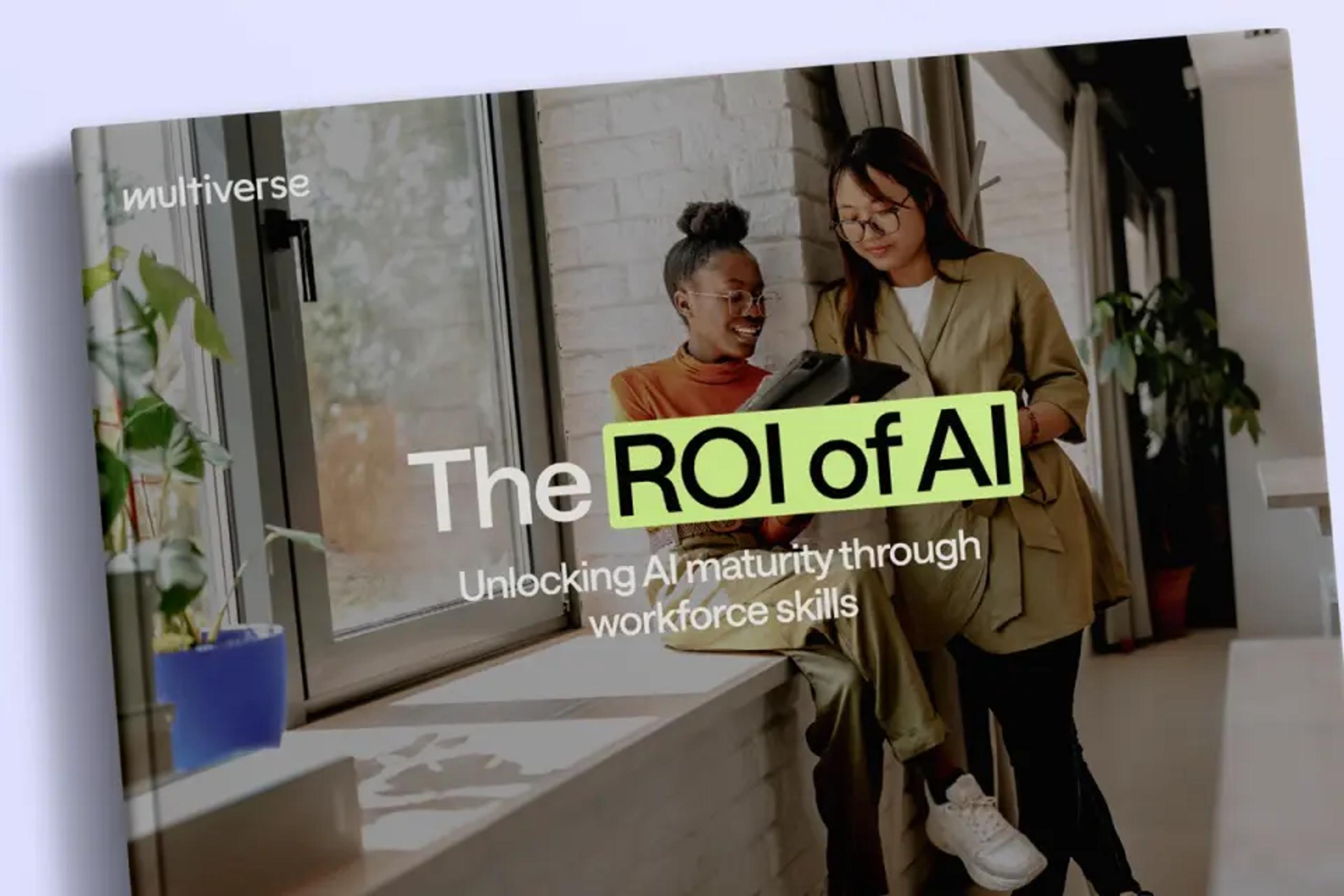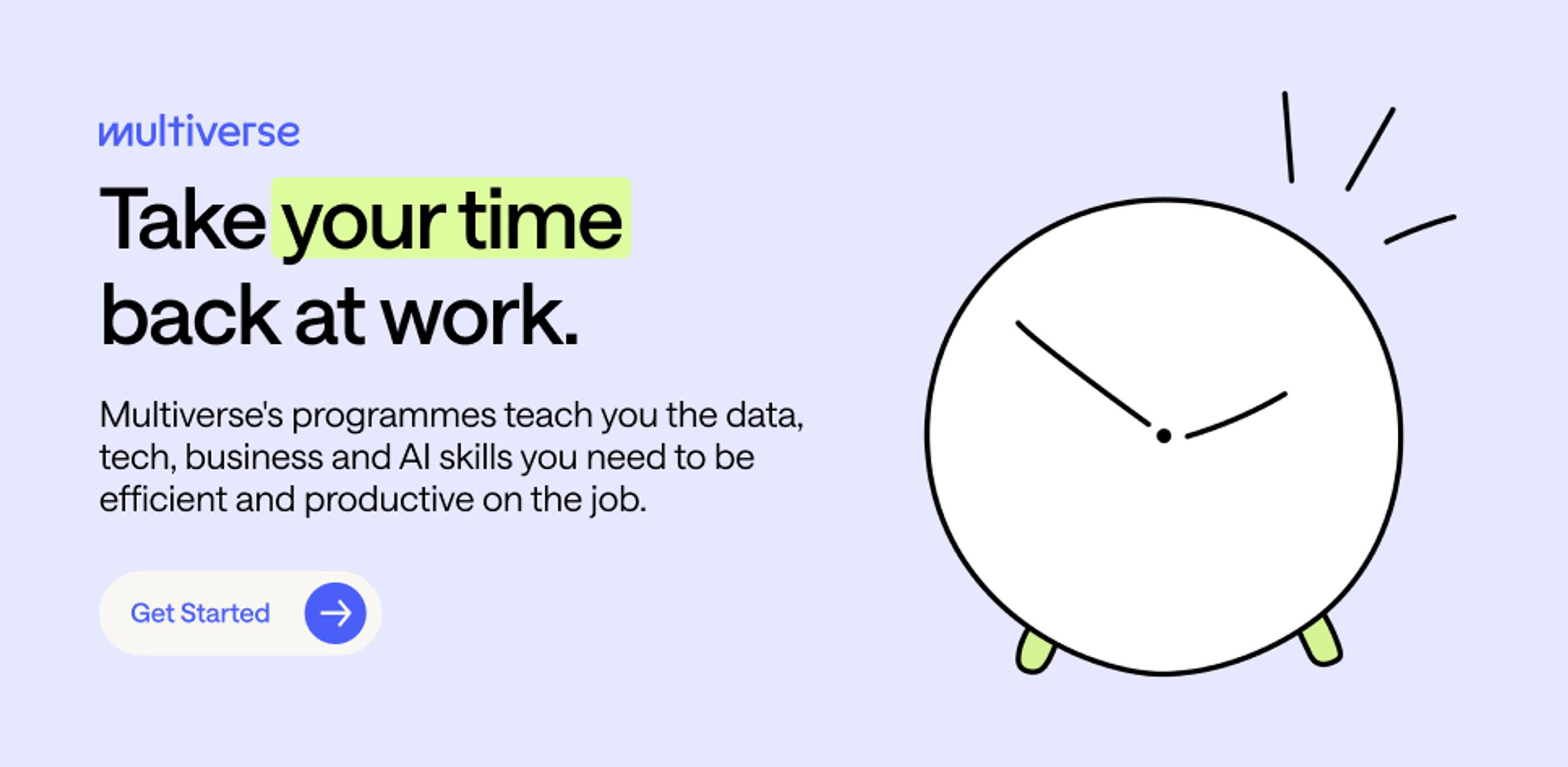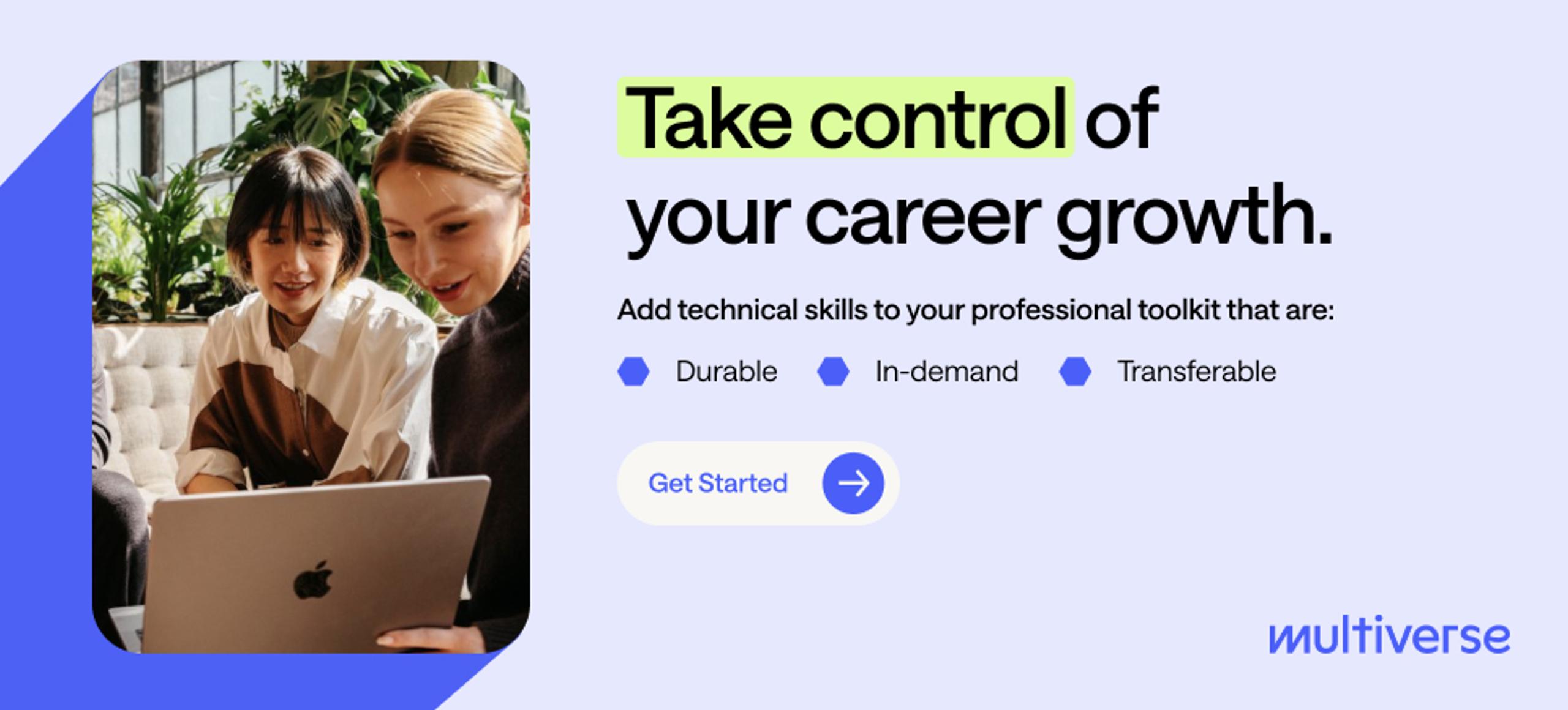Contents
The job landscape has changed dramatically in the last few years—a trend that shows no signs of slowing down. Following the COVID-19 pandemic, 30% of United Kingdom professionals(opens new window) have switched careers. 23% of UK workers(opens new window) expected to change jobs by the end of 2024.
Many factors have fueled this rapid transformation. Artificial intelligence (AI) and automation are reshaping industries and redefining job functions. At the same time, persistent labour shortages(opens new window) have caused many companies to rethink their hiring practices and invest in reskilling current employees.
Adapting to future job trends can help you stay competitive in the constantly evolving employment landscape. It can also help you take advantage of new trends and opportunities for career growth. Below, we break down the ten best jobs for the future, their responsibilities, and key skills.
The Rise of Technology and Its Impact on Employment
Technology is shaping new career paths and reinventing old ones. These advancements offer exciting opportunities for career growth and innovation.
Artificial intelligence is one of the most significant developments. Companies in all industries use this technology to automate tasks traditionally performed by humans. Software Developers can use AI to generate code, while Financial Managers can automate data entry and reporting.
The recent popularity of AI has already created new careers. For instance, AI Ethics Specialists help companies use this technology responsibly. AI Engineers and AI Product Managers develop AI applications. As more organisations invest in this tool, new positions will continue to emerge.
Many people worry that the widespread adoption of AI will replace human labour. The Department for Education predicts that AI could automate 10% to 30% of UK jobs(opens new window). But that doesn’t mean UK workers should expect mass layoffs. Instead, AI may increase productivity and allow employees to focus on more creative and fulfilling tasks.
Along with AI, many other new technologies have reshaped the job market. For example, surgical robots assist healthcare workers with complex procedures. Additionally, virtual reality and augmented reality allow marketers and retailers to give customers more immersive experiences.
Learning these emerging technologies will help you future-proof your career and stay relevant in the changing job market. You can also use this knowledge to transition to new jobs and industries.
Job 1: Data Analyst
A Data Analyst gathers, processes, and interprets data to gain meaningful insights. Companies use these conclusions to make strategic decisions and predict future trends.
Data Analysts rely on some of the following key skills:
- Programming languages - Data Analysts often use Python and R to process and visualise data
- Data collection - Gather information from various sources, such as documents, spreadsheets, and customer surveys
- Statistical analysis - Use different statistical techniques to interpret data and uncover trends
- Communication - Share results with clients, managers, and key decision makers
- Collaboration - Work in cross-functional teams with Data Scientists, Project Managers, and other specialists
Looking to take the next step in your data career? Explore Multiverse's programmes for date professionals to learn how to make the connections between data and business insights that will help you prepare for mid and senior-level roles.
Job 2: Software Engineer
A Software Engineer develops, deploys, and tests software solutions. Depending on the nature of their role, they may participate in every step of the software development lifecycle, from design and development to maintenance.
Software engineering is a broad field with many specialisations. For example, App Developers produce mobile applications for smartphones and tablets. Web Developers design the front and back ends of web apps and websites.
Essential skills for a Software Developer include:
- Programming languages - Write the code for software programmes with JavaScript (web apps), C++ (video games), Kotlin and Swift (mobile apps), and other languages
- Front-end web development - Use HTML, CSS, and JavaScript to design stylish and accessible user interfaces
- Source control management - Track changes to the software’s code and collaborate on projects remotely
- Debugging - Diagnose and fix programming errors
- Encryption - Use algorithms and encryption techniques to protect user information
Are you a Software Engineer? Learn advanced skills and prepare for more senior-level roles with Multiverse’s Advanced Software Engineering programme.
Job 3: Digital Marketing Specialist
A Digital Marketing Specialist advertises brands, products, and services online. They use digital tools to identify and reach their target audiences. For instance, they may create social media posts and email newsletters to promote a new service.
Digital marketing has become an invaluable tool in all industries. In 2022, online marketing made up 75% of the advertising spend(opens new window) in the UK. This competitive landscape has led to an increased demand for skilled Digital Marketing Specialists.
Some foundational skills for Digital Marketers, depending on specialisation, include:
- Search engine optimization (SEO) - Create high-quality, optimised content that ranks at the top of search results
- Content creation - Develop compelling and valuable content that attracts audiences, such as blog posts, infographics, and videos
- Social media marketing - Use Facebook, Instagram, and other social media platforms to engage customers and generate leads
- Marketing automation - Build automated workflows and personalise marketing content with platforms like HubSpot and Mailchimp
Job 4: AI and Machine Learning Expert
Artificial intelligence is a burgeoning field across numerous industries, from agriculture to transportation. Companies use this technology to generate content, automate tasks, power autonomous vehicles, and more.
As more companies leverage this tool, the demand for AI and Machine Learning (ML) Experts has soared. In January 2024, 27% of tech jobs advertised in the UK(opens new window) were AI-focused positions. Additionally, almost 90% of business leaders expect all employees will need basic AI training in the coming years.
AI and ML Experts need expertise in these areas:
- Coding - Popular languages for programming AI applications include Python, Java, Julia, and C++
- Machine learning - Use supervised and unsupervised learning techniques to teach ML models how to detect patterns and make predictions
- Mathematics - Use calculus, statistics, and other mathematical concepts to build algorithms and models
- Natural language processing - Create applications that recognize, understand, and respond to spoken or written human language
Gain proficiency in these areas with Multiverse’s AI for Business Value programme. Apprentices learn how to harness AI to drive business growth and innovation — all for free when your employer partners with us.
Job 5: Cybersecurity Analyst
Between 2022 and 2023, cybersecurity job postings(opens new window) in the UK increased by 30%. 50% of all UK companies have a basic cybersecurity skills gap. These statistics highlight the growing demand for cybersecurity experts to safeguard data and systems.
Cybersecurity jobs require these skills:
- Intrusion detection - Use cybersecurity software to monitor networks and detect suspicious activity
- Incident response - Isolate compromised systems and use mitigation techniques to stop cyberattacks
- Cryptography - Develop protocols to stop cybercriminals from accessing confidential data
- Communication - Prepare security reports and educate colleagues about cybersecurity best practices
Job 6: UX/UI Designer
A User Experience/User Interface (UX/UI) Designer creates user interfaces for apps, websites, and other tech products. They increase user satisfaction by designing accessible and visually appealing interfaces.
Here are three must-have skills for a career in UX/UI design:
- Prototyping - Develop simulations or models of the final product to test with users
- Usability testing - Conduct research to see how real users interact with the product and refine your design accordingly
- Collaboration - Collaborate with Software Developers, Product Managers, and other professionals to develop products
Job 7: Cloud Solutions Architect
Cloud computing has become an integral part of the digital world. This shift has raised the demand for Cloud Solutions Architects, who design and manage cloud-based infrastructure.
Here are a few basic requirements for Cloud Solutions Architects:
- Network knowledge - Understand how cloud-based networks transmit and receive information
- Cybersecurity - Safeguard cloud infrastructure and applications with access controls, encryption, and other techniques
- Coding - Most Cloud Solutions Architects use Java, Python, and C++ to develop cloud infrastructure
Prepare for future jobs in cloud computing with Multiverse’s Software Engineering programme. You’ll learn foundational computer science concepts and become proficient in top coding languages. Our electives also let you develop expertise in cloud engineering, cybersecurity, or a related field.
Job 8: Blockchain Developer
Blockchain technology uses cryptography to verify transactions and create secure, unchangeable records. Companies use this technology to process payments and protect intellectual property.
Blockchain Developers design, build, and manage blockchain applications and platforms. This career path requires proficiency in these areas:
- Blockchain architecture - Understand the components of blockchain systems, including blocks and Distributed Ledger Technology
- Programming - Blockchain Developers typically use C++, JavaScript, and Ruby to build systems
- Cryptography - Use cryptography protocols to encrypt and decrypt information
Job 9: Internet of Things (IoT) Engineer
The Internet of Things (IoT) landscape has expanded rapidly in the last few years. These physical devices transmit information to an interconnected network of other objects and the cloud.
The growth of IoT has led to an explosion of jobs. An Internet of Things Engineer designs and develops IoT ecosystems and devices.
IoT engineering jobs require many skills, including:
- Computer-aided design - Use AutoCAD and other software to design the physical hardware components of IoT systems
- Software development - Create applications to control and monitor IoT devices
- UI/UX design - Use UI/UX design principles to develop easy-to-navigate IoT solutions
Job 10: Sustainability Officer
UK businesses will increase spending on sustainability by 260%(opens new window) between 2018 and 2030. As more companies invest in the environment, the demand for Sustainability Officers has grown.
Sustainability Officers develop and oversee sustainability initiatives. They also make sure businesses comply with relevant environmental regulations.
Key skills for Sustainability Officers include:
- Reporting - Document and share sustainability efforts
- Stakeholder engagement - Build partnerships with managers, employees, regulatory agencies, and other stakeholders
- Communication - Discuss the company’s sustainability practices with internal and external stakeholders
Step into the future with Multiverse’s apprenticeships
As technology develops, new professions will emerge to address the evolving needs of businesses and customers. The best jobs for the future combine cutting-edge technology with transferable skills that will help you continuously adapt.
Prepare for the ever-evolving job market with a Multiverse apprenticeship. Our programmes equip apprentices with the knowledge and skills needed to excel in the rapidly changing work landscape. You’ll receive hands-on training, one-on-one mentorship, and a structured education to help you succeed in your current and future jobs.
Complete our quick application today for current professionals(opens new window) and the Multiverse team will get in touch to discuss the next steps.










